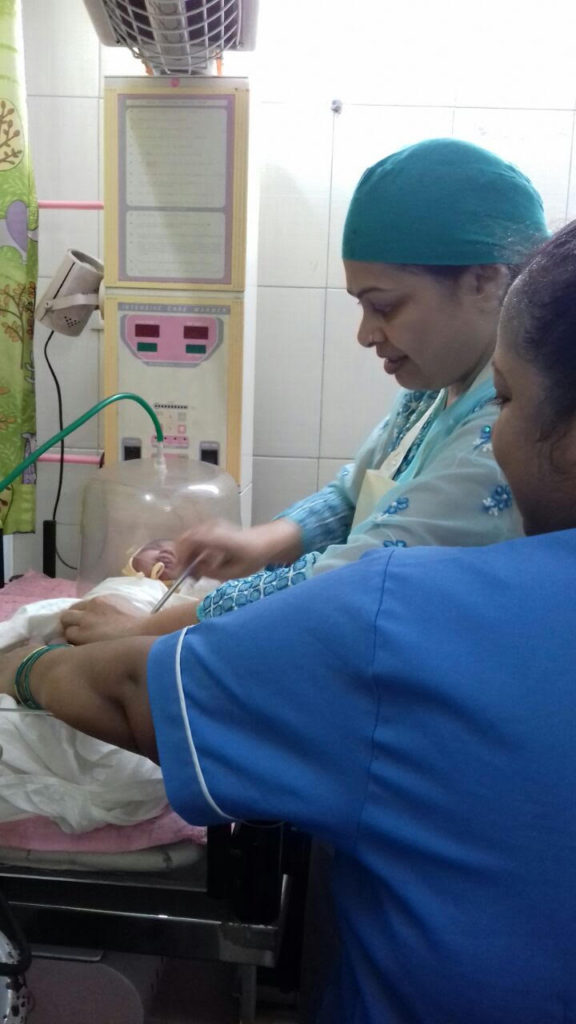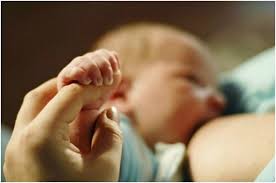
Vaatsalya Clinic
YOUR ANGEL HAS ARRIVED (POST DELIVERY)


Congratulations on the birth of your baby!
Once your baby is born in a hospital there are several routine things that will happen in the hours after the birth. These are generally aimed at making sure you and your baby are well and that everything is working as it should. Some babies will need to go to special care for a while, some will even need to spend time in intensive care but generally, most babies are born in good health and will stay with you after the birth.
CARE OF THE JUST BORN
The medical staff will dry your baby and place a blanket around him or her. All of this happens very quickly, and before you know it your baby is in your arms for some special bonding time. After a first breastfeeding attempt, it’s time for a few more procedures, usually after about 10–30 minutes.

.
Your new-born will go through a few other quick procedures, which may include:
clearing the nasal passages with a suction bulb
weight, head circumference, and length measured


While the mother rests in either the birthing or recovery room, the baby is taken to the nursery to receive a thorough bath. Your baby will be given vitamin K by injection to help the blood clot properly.

New-born blood spot screening (heel prick test)
This test is done when your baby is 48-72 hours old. It’s completely voluntary, so your doctor has to ask you if you want your baby to be tested. The nurse will take a sample of blood from the baby’s heel; a few drops of his blood will be collected on special filter paper. If you’re worried about this causing him pain, you could try breastfeeding him while the test happens – research shows that this could comfort him. This is used to test for rare but potentially serious illnesses. All babies are tested for phenylketonuria (PKU) – a metabolic disorder; cystic fibrosis; galactosaemia; and congenital hypothyroidism – thyroid hormone deficiency.

What Your Baby Does on the First Day
Your new-born will cry, sleep, and at times will look directly into your eyes. Although the vision is blurry, your baby can best see your face that is about 10 inches away. Your baby will grab onto your finger if you place it in his or her palm.

After initially being very awake, most new-borns get sleepy for about the next 24 hours. It’s important to wake them to feed every 2 to 3 hours so they get used to the process and start to get something to eat. If a mother is breastfeeding, this is also the best way to encourage milk to come in.
Feeding Your Baby
A mother can begin breast feeding as soon as her new-born is placed in her arms. Although milk probably won’t fully come in for another day or two, especially with first-time mothers, the baby does receive nourishment from the colostrum, a precursor to actual breast milk. For some women colostrum is thin and watery; for others it is thick and yellowish. As your baby sucks on the breast, this action triggers hormones to tell the body that it’s time to produce milk. These first feedings are great practice runs for both mom and baby.

Some babies (especially premature and smaller babies) have a hard time latching on or getting enough suction to nurse from the breast. A nurse, breastfeeding counsellor, or lactation consultant can help you and your baby overcome any hurdles. Initially, you will probably be feeding your baby about every 2 to 3 hours around the clock.
Your Feelings
Having a baby is a major, life-changing experience. Don’t be surprised to find that you go through a broad range of feelings. You may experience everything from relief to concern to anxiety to pure joy. And your feelings may change suddenly and unpredictably. In addition, the mother has just been through quite a bit physically. There’s a good chance she’ll be exhausted, and both parents may start feeling the effects of sleep deprivation. There’s a huge amount to get used to in the first few days with your baby. There is the excitement of getting to know your baby, but you will also be tired and your body will be recovering from labour and the birth.
Every parent reacts differently. Some mothers “forget” the difficulties of labour as soon as they catch a glimpse of their new-borns. Some feel high levels of energy driven by the excitement of finally having the baby. Still others feel sad and may experience baby blues or the more serious postpartum depression.
Friends and Family

Although you want to share your good news with the world, a good rule of thumb is to keep the first day simple. It’s fine to have your loved ones meet the baby the first day. Grandparents or siblings can meet the newest family member and start to bond right away. But avoid a parade of visitors in and out of the room to keep the baby’s first day tranquil and low-key. Parents and baby need plenty of rest and quiet bonding time.
It’s also wise to limit visitors in the first few weeks because of the possibility of exposing your baby to infection. Whenever visitors come, make sure they are not sick, and have everyone wash their hands before touching the baby.
When your baby is born, you’ll begin an entirely new phase of your life. Take the time during your baby’s first days to enjoy this new beginning.
.
© Vaatsalya Clinic. All Rights Reserved. Website Designed by Shaivali Joshi andJimmy Thakkar.